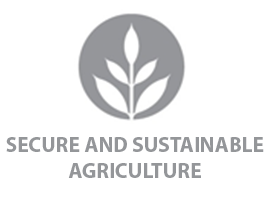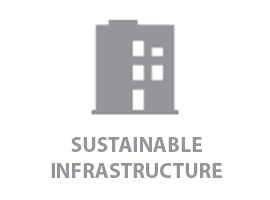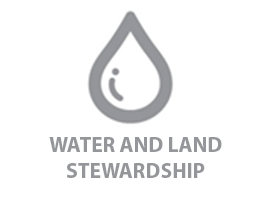2021-2024 iSEE Seed-Funded Research Projects
Supporting interdisciplinary research and collaboration
Research Menu
 Current
Current
Funded
iSEE Work
 Current
Current
Funded
iSEE Work
Current
Funded
iSEE Work
Current
Funded
iSEE Work
Current
Funded
iSEE Work
Since its first year in 2013-14, iSEE has seed-funded interdisciplinary research projects on topics related to sustainability, energy, and environment to promote new research collaborations or enhance existing collaborations among faculty across campus that will improve their potential for attracting external support.
The goal of this funding is to enable faculty to develop exploratory research ideas that involve multiple disciplines and departments in any of the five thematic areas of interest
to iSEE (Climate Solutions, Energy Transitions, Secure & Sustainable Agriculture; Sustainable Infrastructure, and Water & Land Stewardship); collect preliminary data or other information to develop a research project; and prepare and submit research proposals for external funding.
Read the news release about the 2024 selections >>>
Read the 2022 news release >>>
Read the 2021 news release >>>
2024 Seed-Funded Projects
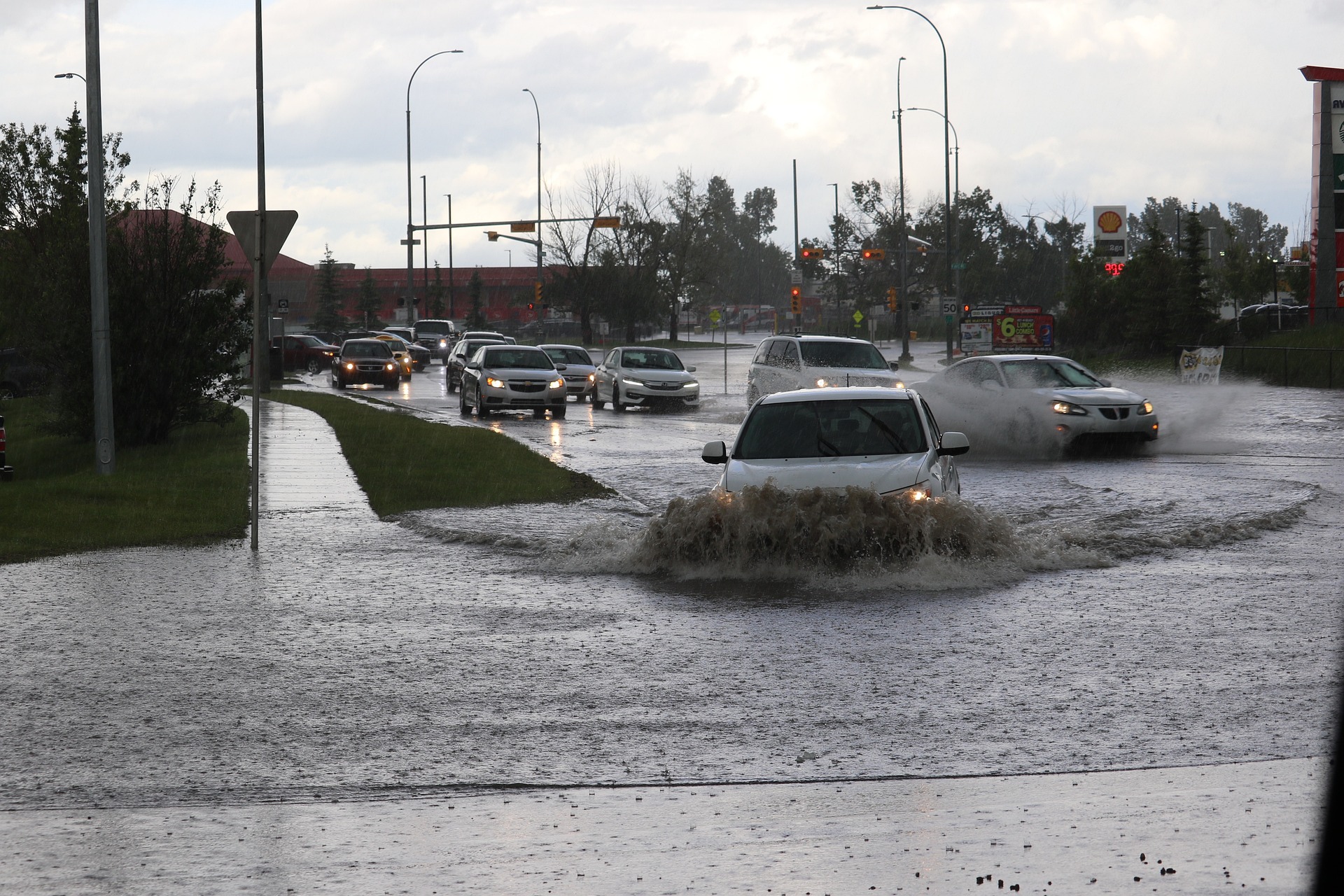
‘Future Metropolis Initiative’ Planning Grant
Cities house more than 50% of the world’s population and contribute to about 75% of carbon emissions from global energy use. Many climate-driven threats — such as extreme weather, water scarcity, and energy insecurity — are rooted in or exacerbated by the high population densities and infrastructure of urban centers. Absent measures to understand and ameliorate these risks, they are expected to intensify with rapid urban development.
Click here to learn more
The Future Metropolis Initiative will bring together an interdisciplinary team of experts in climate, the built environment, health, energy, transportation, policy, and human and community behavior — coupled with innovative geographical information systems, artificial intelligence/machine learning, and computational and data science solutions — to build an integrated platform addressing the Grand Challenges facing cities in a holistic, equitable way.
“With this planning grant from iSEE, we can begin to build a transformative and integrated system that is both science-driven and solution-oriented to foresee climate risks in cities, to foster innovative urban solutions, and to advance global sustainable growth,” said Principal Investigator Lei Zhao, Assistant Professor of Civil and Environmental Engineering.
The Project Leaders
-
Lei Zhao, Assistant Professor of Civil and Environmental Engineering
-
Cristian Proistosescu, Assistant Professor of Climate, Meteorology, and Atmospheric Sciences
-
Marynia Kolak, Associate Professor of Geography and Geographic Information Science
- Yanfeng Ouyang, Professor of Civil and Environmental Engineering

Economic and Human Health Effects of Wildfires
Research has demonstrated that wildfires are increasing in size and cost, with far-reaching implications for human health and the economy; further, climate change has been linked to increased exposure to wildfires. To date, however, no study has examined all of those factors combined, at either a regional or global scale, leaving a “critical gap” in our understanding of the social and economic impacts of climate change and policies needed to address them
Click here to learn more
“This project will lay the foundation for a multidisciplinary research agenda that can close this gap and potentially feed directly into U.S. environmental policy,” said Principal Investigator Andrew Hultgren, Assistant Professor of Agricultural and Consumer Economics. “iSEE’s funding is critical to building out our capacity to quantify the social impacts of a changing wildfire regime under future warming — information that can be used by local, regional, and national policymakers in their climate policy decision-making.”
The Project Leaders
-
Andrew Hultgren, Assistant Professor of Agricultural and Consumer Economics
-
Christopher Tessum, Assistant Professor of Civil and Environmental Engineering
-
Miriam Marlier, Assistant Professor of Environmental Health Sciences, University of California Los Angeles
-
Patrick Baylis, Assistant Professor of Economics, University of British Columbia
-
Tamma Carleton, Assistant Professor of Environmental Economics, University of California Santa Barbara
- Kelly McCusker, Atmospheric Scientist and Associate Director, Rhodium Group
2022 Seed-Funded Project
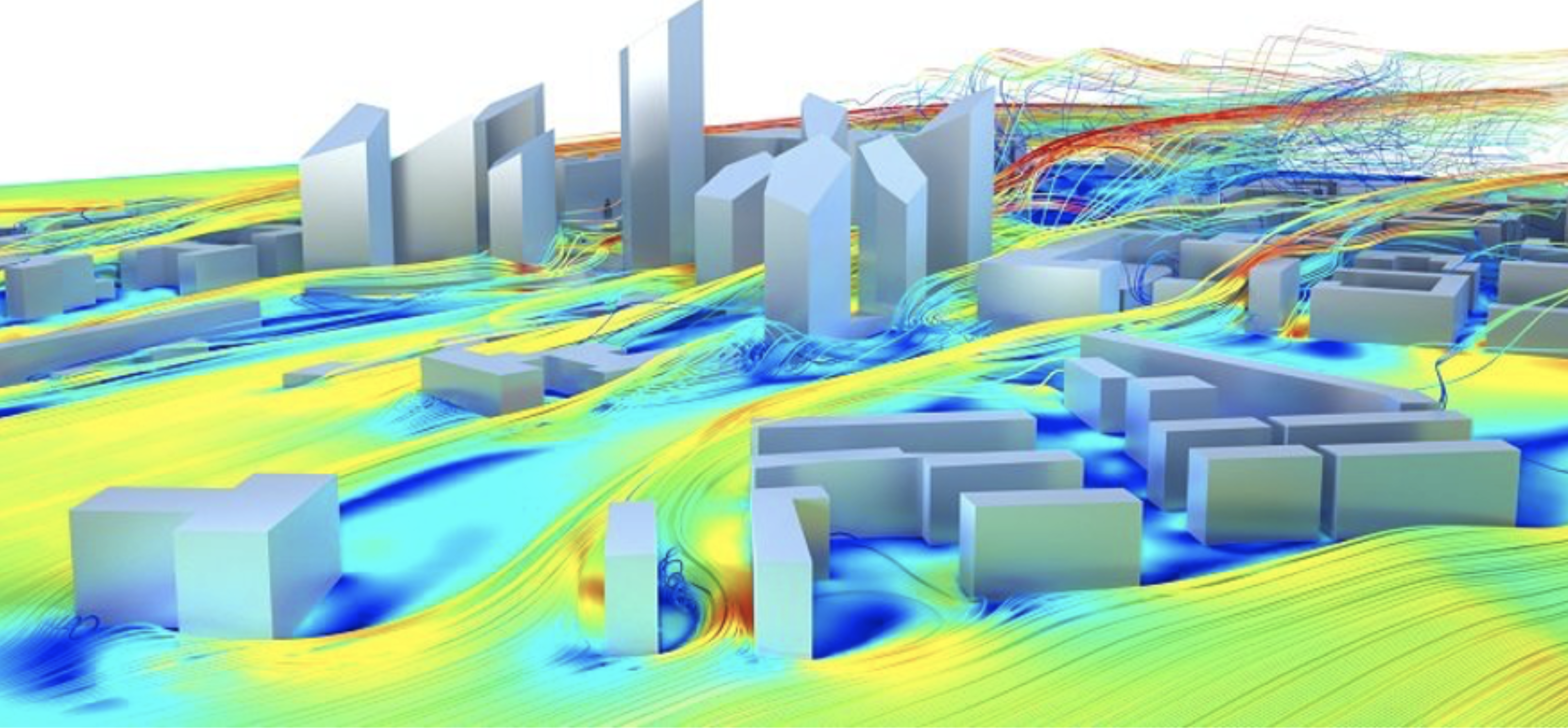
A Next-Generation Model for Urban Sustainability Science
Occupying just 3% of the Earth’s land surface, urban areas house more than half of the world’s population — and contribute about 75% of carbon emissions from energy use. Many climate-driven threats such as heat stress, water scarcity, and energy insecurity are either rooted in or exacerbated by urban environments. Rapid urban development, coupled with climate change, will only increase these risks.
Click here to learn more
Researchers, policymakers, and industries recognize the urgent need to develop a new convergent urban science to chart pathways to more sustainable urban environments. To build this science, a critical hurdle must be overcome: representation of complex urban forms and urban-scale processes in large-scale Earth system models (ESMs).
This project strives to develop a novel urban modeling framework that combines both process-based modeling and cutting-edge, physics-informed deep learning networks, using recent advances in urban climate theories, data, modeling, and high-performance computing.
The urban population is expected to nearly double in three decades, whereas half of the urban infrastructure that we will need in 2050 has not yet been built. This massive urbanization exposes cities to substantial risks but also presents a historic opportunity to mitigate the negative impacts of climate change and to advance global sustainability growth.
Summer 2024 Updates
-
In April, PI Lei Zhao and team members published “Enhancing Urban Climate-Energy Modeling in the Community Earth System Model (CESM) Through Explicit Representation of Urban Air-Conditioning Adoption” in Journal of Advances in Modeling Earth Systems. The article, which was featured as the Eos Editor’s Highlight, highlighted the team’s work developing an explicit air-conditioning adoption scheme and a global dataset to improve urban energy demand modeling and “unlock exciting capabilities in Earth system models,” Zhao said.
- Zhao was selected as one of only six Scoping Experts by the Intergovernmental Panel on Climate Change (IPCC) and the U.S. Global Change Research Program to represent the United States for the IPCC AR7 Special Report on Climate Change and Cities. “My research funded by iSEE will have the potential to contribute to this upcoming IPCC special report,” Zhao said.
February 2024 Update
-
Read our research feature on the team’s use of process-based climate modeling and machine learning/artificial intelligence to produce a real simulation of climate dynamics in urban landscapes.
September 2023 Update
-
 Project PI Lei Zhao recently earned two prestigious awards:
Project PI Lei Zhao recently earned two prestigious awards:- The American Geophysical Union’s Global Environmental Change Early Career Award, announced Sept. 13. He will be recognized at AGU23 on Dec. 11-15.
- And the International Association for Urban Climate’s Timothy Oke Award for Original Research in the Field of Urban Climatology, announced during the International Conference on Urbana Climate Aug. 28-Sept. 1 in Sydney, Australia.
Spring 2023 Updates
-
Project PI Lei Zhao’s graduate students, Civil and Environmental Engineering Ph.D. students Joyce Yang, Xinchang “Cathy” Li and Bowen Fang, recently received the Andrew Slater Award from the U.S. National Center for Atmospheric Research (NCAR)’s Land Model Working Group. The awards committee cited the team’s impressive advancements in recent years related to the development of transient urban capabilities as well as the application of the model to investigate changing heat stress and energy demand under climate change in urban environments. Full story >>>
-
Yang and Zhao co-authored “Large Humidity Effects on Urban Heat Exposure and Cooling Challenges under Climate Change” in Environmental Research Letters, and graduate student Laura Gray and Zhao co-authored “Impacts of Climate Change on Global Total and Urban Runoff” in Journal of Hydrology. Both projects were partly funded by the iSEE seed grant.
- Zhao was part of a team that authored “Increased Heat Risk in Wet Climate Induced by Urban Humid Heat” in Nature. The study was partly supported by the iSEE seed grant.
The Project Leaders
-
Lei Zhao, Assistant Professor of Civil and Environmental Engineering
-
Jinhui Yan, Assistant Professor of Civil and Environmental Engineering
-
Francina Dominguez, Associate Professor of Climate, Meteorology & Atmospheric Sciences
2021 Seed-Funded Projects

RURAL: Resilient Urban-Rural Analysis for Livability
This project seeks to answer a critical question facing the American Midwest: “Can sustainability be rural?” As populations migrate from populous cities to small communities, it is critical to ensure that these “urban-rural” communities maintain resilience and livability for all residents.
Click here to learn more
However, increasingly severe weather (e.g., the devastating and costly 2020 derecho event) and racialized social inequities create barriers against inclusive, sustainable development.
Using a system of midsized communities like Champaign-Urbana, Peoria, and Aurora as a testbed, the research team will investigate the many interlocking systems that comprise the urban-rural network, with a specific focus on the following subsystems: food (security and agricultural land management); water (infrastructure and flood/drought mitigation); energy (generation and use); and people (movement between cities, “white flight,” and segregation).
Systems of midsized cities and their rural surroundings differ from large metropolitan environments in that they dually rely on agriculture and infrastructure; however, these synergistic systems are under-studied. Data generated from this research will create a new wealth of knowledge to inform best practices for land management, ecological biodiversity, government, and environmental justice.
The Project Team (updated Summer 2021)
- Amy Ando, Professor of Agricultural & Consumer Economics
- Julie Cidell, Professor of Geography & Geographic Information Science
- Shaowen Wang, Professor of Geography & Geographic Information Science
- Andrew Greenlee, Associate Professor of Urban & Regional Planning
- James O’Dwyer, Associate Professor of Plant Biology
- Ryan Sriver, Associate Professor of Climate, Meteorology & Atmospheric Sciences
- Ashlynn Stillwell, Associate Professor of Civil & Environmental Engineering
- Deanna Hence, Assistant Professor of Climate, Meteorology & Atmospheric Sciences
- Liang Chen, Research Scientist in Climatology, Illinois State Water Survey
- Brenda Molano-Flores, Plant Ecologist, Illinois Natural History Survey
- Ashish George, Postdoc
- Jose Acosta-Cordova, Graduate Student, Geography & Geographic Information Science
- Allisa Hastie, Graduate Student, Civil & Environmental Engineering
- Emma Walters, Graduate Student, Urban & Regional Planning
- Kaylee Wells, Graduate Student, Agricultural & Consumer Economics
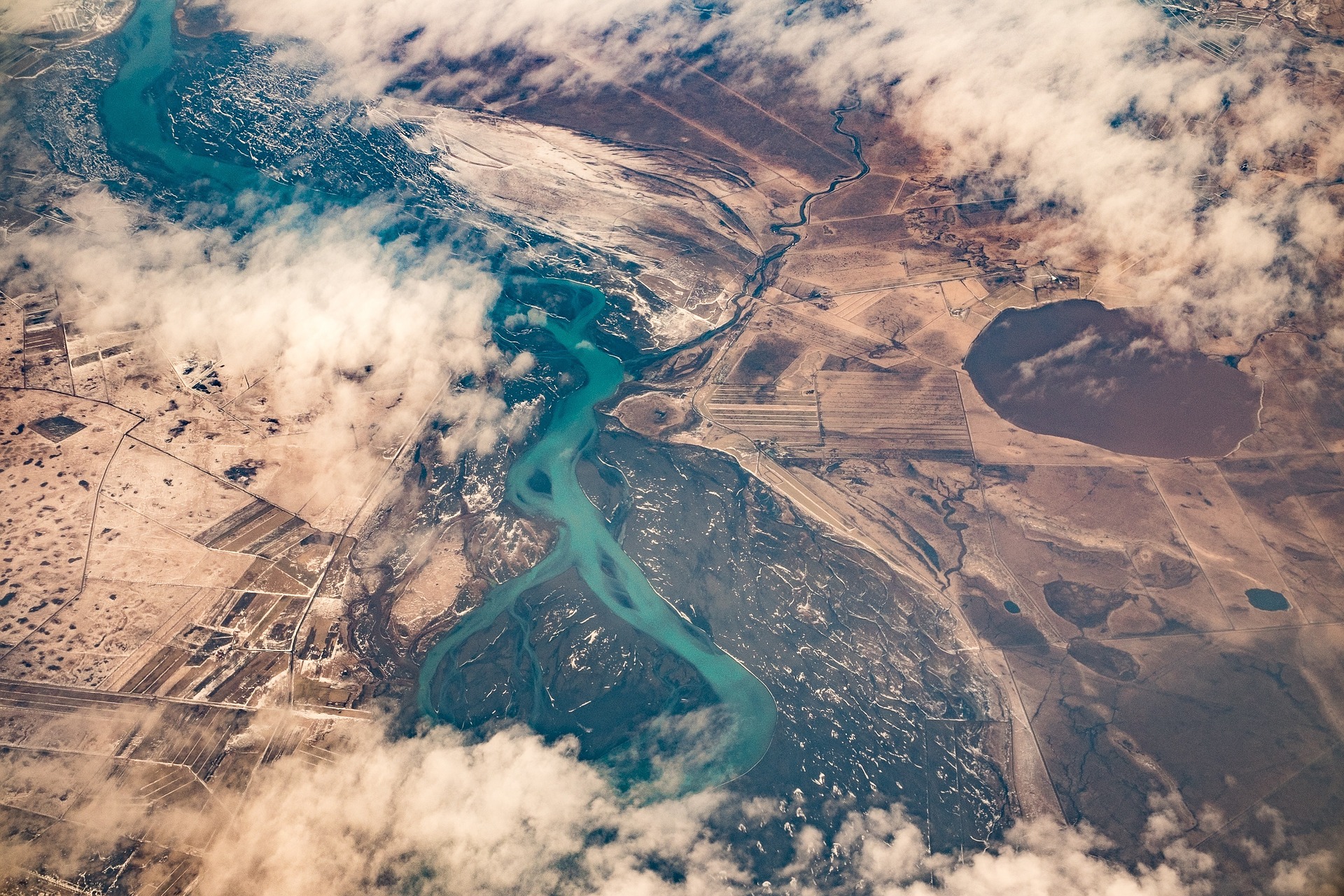
Integrated Electrochemical Separation Technologies for Nutrient Recovery and Valorization
While agricultural fertilizers can optimize food crop production in the U.S., excess nitrogen runoff from these products threatens the health of the country’s freshwater systems. In Midwestern watersheds (e.g., the Illinois River Basin), elevated chemical concentrations lead to pollution and dangerous algal blooms.
Click here to learn more
But removing nitrogen from waterways — from the Chicago River to the Mississippi — poses extreme scientific and environmental challenges. To remedy this growing concern, a U of I research team is fashioning an environmentally sustainable system to not only capture excess nitrogen from contaminated water, but also upcycle that nitrogen for reuse in products like ammonia (which is itself an agricultural fertilizer).
To develop a fully renewable-energy-based process to recover and use nitrogen, the team will take a three-pronged approach. First, they’ll use a sophisticated, electrically powered nitrogen-selective separation process to remove the chemical from polluted water. Next, the nitrate will be upcycled into ammonia. (While current methods for ammonia production are energy-intensive and contribute 3% of global carbon emissions, this team’s method will use renewable electricity.)
The final step in this process is a techno-economic and life cycle analysis, to ensure the value and holistic sustainability of the nitrogen removal and ammonia production process as a whole. Ultimately, this combination of nitrogen recovery and use will promote sustainable land stewardship, strengthen community resilience to nitrogen runoff, and encourage energy-efficient nutrient recycling on a larger scale.
The Project Team
- Xiao Su, Assistant Professor of Chemical and Biomolecular Engineering
- R. Mohan Sankaran, Donald Biggar Willett Professor of Nuclear, Plasma & Radiological Engineering
- Prashant K. Jain, Professor of Chemistry and Alumni Scholar
- Xinlei Wang, Professor of Agricultural and Biological Engineering
- Shao-Wei Tsai, Postdoc, Chemical and Biomolecular Engineering
SUMMER 2024 UPDATE
Said Su: “It has been great to work through the iSEE on developing new electrochemical technologies for nutrient recovery, to address the water-energy nexus. Our group has made significant progress in the development of new electrochemical adsorbents for nitrate and phosphate — and collaborated with researchers across campus for evaluating their feasibility and technoeconomic analysis.”
FEBRUARY 2023 UPDATE
A team led by Su recently completed a study, published in Nature Communications, that demonstrates energy-efficient conversion of nitrate pollutants into ammonia. Read the U of I News Bureau news release >>>
SUMMER 2021 UPDATE
In April, the team put in a $2 million proposal (“EFRI-DChem: Electrically-Powered Manufacturing of Value-Added Nitrogen Compounds;” lead PI: Sankaran; Co-PIs: Jain, Wang, Su, and one more) to the National Science Foundation’s Emerging Frontiers in Research and Innovation (EFRI) program. A decision is pending.
On July 3, Su and co-authors published “Redox-Mediated Electrochemical Desalination for Waste Valorization in Dairy Production” in Chemical Engineering Journal. Read the U of I News Bureau news release >>>
Program Background
Our research requires interdisciplinary collaboration, bringing the brightest of the bright together to solve the world’s current and future problems. We call it “actionable research” — that is, scientific progress toward real-world solutions that can have an immediate and/or lasting impact on the world we live in.
Approved by the University of Illinois Board of Trustees in December 2013, iSEE made its first funding award in 2014 for three projects. In 2015, iSEE seed-funded four projects. It has helped facilitate large research grant proposals in ensuing years, acquiring funding for projects and centers on the Illinois campus. In 2018, iSEE began offering seed funding for its Campus as a Living Laboratory program. In 2019, the Institute supported its largest class of seed-funded projects with nine total, including four that are part of Campus as a Living Lab.
Check out the 2020 iSEE-funded interdisciplinary projects >>>
Check out the 2019 iSEE-funded interdisciplinary projects >>>
